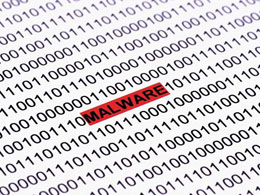
Mt Gox Users Beware, Else Lose your Bitcoins Again to a new Malware
Investors in Mt Gox have now become targets of an elaborate phishing scam where they are sent malware-laden emails which can empty their offline bitcoin wallets. There is no end to the woes of Mt Gox victims. At the time when things are looking a bit promising to a handful of those who lost their bitcoins with the collapse of Mt Gox, there is a new problem facing them. These former investors in Mt Gox seem to be particularly targeted by criminals after most of them have reported receiving emails about the launch of a new exchange to help recover their lost digital currency. These emailers....
Related News
Bitcoin Vigil is a project aiming to give users a new way to detect malware on their personal computers, offering a method of intrusion detection that tracks malware attempting to steal bitcoins from PC wallets. Eric Springer, a Canadian developer living in Mexico, thinks Bitcoin Vigil's idea is pretty simple: "You can just leave the bitcoin wallet on your computer, and it will let you know if you have malware." How it works. When users fund a wallet on the Bitcoin Vigil website, they can download a database file containing the wallet's information. It is effectively a wallet generated....
Some tricky new malware is infecting Mac users by imitating legitimate software. The “Advanced Mac Cleaner,” professes to be an anti-malware tool in order to sneak onto Mac computers. New Malware Targeting Mac Users. Bitcoinists who use Macs ought to be especially concerned, as the malware specifically targets Mac users by mimicking an anti-malware tool designed for Macs. Malware can be used to steal private keys and wallet passwords, allowing malicious actors to gain access to your funds. The malware was discovered first by Thomas Reed, lead researcher at anti-malware firm, MalwareBytes.....
A trojan called CoinThief is stealing tens of thousands of dollars worth of BTC from unsuspecting Mac users. Contrary to popular belief, Macs do in fact get viruses. It's just that 91% of the world uses Windows while only 7% of the world uses OSX (The remaining percentage uses Linux). As such, virus makers have more incentive to create malware for Windows, because it simply makes sense to target the majority of computer users. This is generally great news for Mac users, since they remain virtually virus free. However, it can make them pretty complacent about security, and when a Mac virus....
A piece of malware is currently terrorising computer users by encrypting their data and charging a ransom - in fiat currency or bitcoins - to decrypt the information. Called CryptoLocker, the ransom malware is contained within phishing emails, so it infects a users computer when they open an attachment in one of these messages. Yuval Ben-Itzhak, CTO at security software company AVG, said: "Ransom malware has been around in different variations since the early 1990's." He went on to explain that a victim of the malware would typically receive an email that pretends to be from a well-known....
A new report from Kaspersky Lab has found developers continue to target users with malware geared toward illicitly generating or stealing bitcoin, though rates have fallen over the past year. According to the company's report on cybersecurity threats, bitcoin mining malware accounted for 9% of financial bugs detected. Programs designed to steal bitcoins from wallets accounted for 6%. Source: Kaspersky Lab. These figures suggest a possible decline in activity. According to Kaspersky Lab's Q2 report from last year, detection rates for illicit mining programs and wallet stealers accounted for....





